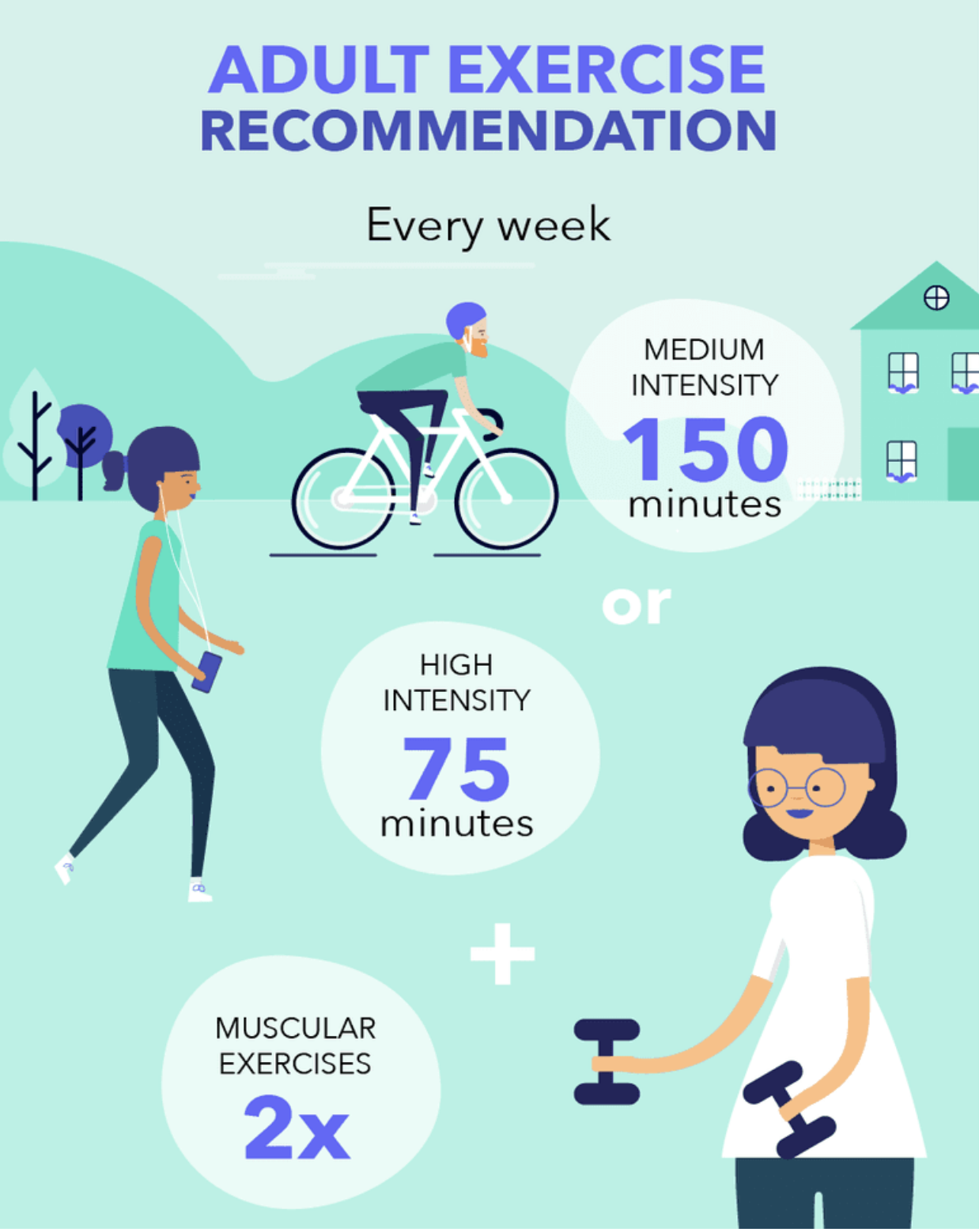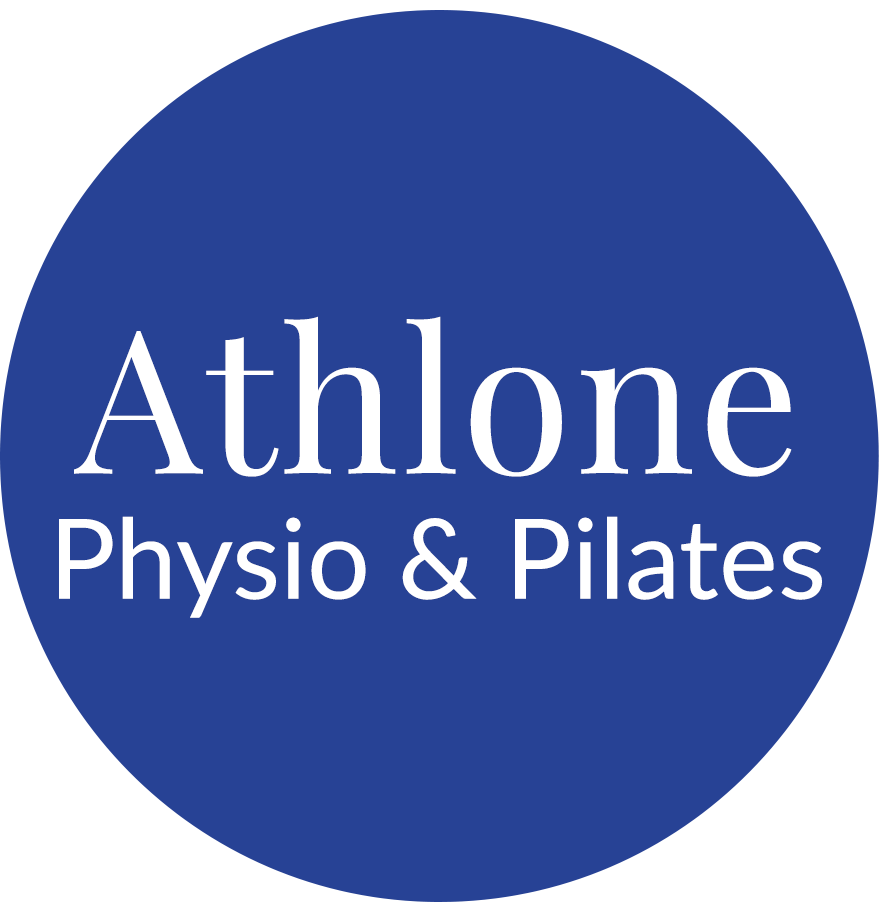Make time for fitness no matter your age or how busy you are!
The more you move the better you move.
The World Health Organization advises that for health benefits all adults need to be physically active at a moderate level for at least 150 minutes a week e.g. 30 minutes exercise 5 days a week. Two strengthening and flexibility workouts per week are also advised. These are the minimum guidelines.
It also recommends that children and young adults should do at least 60 minutes of moderate to vigorous physical activity daily.
 Regular and adequate levels of physical activity help
Regular and adequate levels of physical activity help
- improve muscular and cardiorespiratory fitness;
- improve bone and functional health;
- reduce the risk of hypertension, coronary heart disease, stroke, diabetes, various types of cancer (including breast cancer and colon cancer), and depression;
- reduce the risk of falls as well as hip or vertebral fractures; and are fundamental to energy balance and weight control.
Any activity that gets your body moving is great for your health and wellbeing. You don’t need gym equipment to stay active. Everyday activities such as doing the vacuuming, hanging out the washing, and mowing the lawn all count towards your daily activity levels.
If you are new to exercise or haven’t exercised in a while build up your activity level slowly. Maintain an exercise record on your phone, in a calendar or on a fitness device and this will help keep you motivated and on track. Wear comfortable, supportive walking shoes and do a few minutes warm up e.g. marching on spot for 5 minutes, arm circles, shoulder rolling before you start.
Simple activities that benefit you
- Stand up from sitting and then sit down gently. Repeat this 10 times and do this activity 2 or 3 times daily.
- Walk as much as you can and walk wherever you can. Walk at a brisk pace and aim to be able to complete a mile in 15-20 minutes approximately.
- If using the car to get to work park it at the far end of the carpark and try to fit in a walk at lunchtime.
- Active housework / gardening is good for you and sing when you’re doing it as it exercises your vocal chords and face muscles.
- Sing as often as you can. You can also dance around your living room to your favourite music.
- Break up long periods of sitting by getting up and moving for a few minutes every hour.
- Join a walking group or make plans to walk with someone 2 / 3 times weekly. Try to vary your routes and challenge yourself with hills.
- Work on your balance. Try standing on 1 leg for 5 seconds doing this 2/3 times. Then repeat on the other leg. Initially place your hand on a wall or use the window ledge or the back of a chair for support. Monitor your improvement over a month.
- Use the stairs whenever you can.
- Wear the right footwear and know your foot type (get advice from your Chartered Physiotherapist if unsure about this).
- Do not walk or play sport if injured.
STAY ACTIVE – STAY WELL – STAY MOVING




